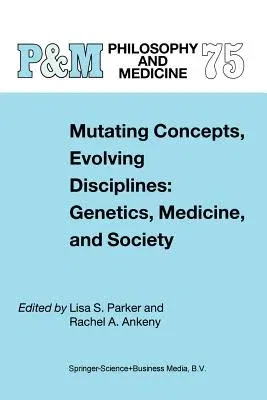Mutating Concepts, Evolving Disciplines: Genetics, Medicine, and Society (2002)Paperback - 2002, 10 October 2012

Qty
1
Turbo
Ships in 2 - 3 days
In Stock
Free Delivery
Cash on Delivery
15 Days
Free Returns
Secure Checkout
Part of Series
Philosophy and Medicine
Print Length
333 pages
Language
English
Publisher
Springer
Date Published
10 Oct 2012
ISBN-10
9401039593
ISBN-13
9789401039598
Description
Product Details
Book Edition:
2002
Book Format:
Paperback
Country of Origin:
NL
Date Published:
10 October 2012
Dimensions:
22.86 x
15.24 x
2.01 cm
ISBN-10:
9401039593
ISBN-13:
9789401039598
Language:
English
Location:
Dordrecht
Pages:
333
Publisher:
Series:
Weight:
517.09 gm

